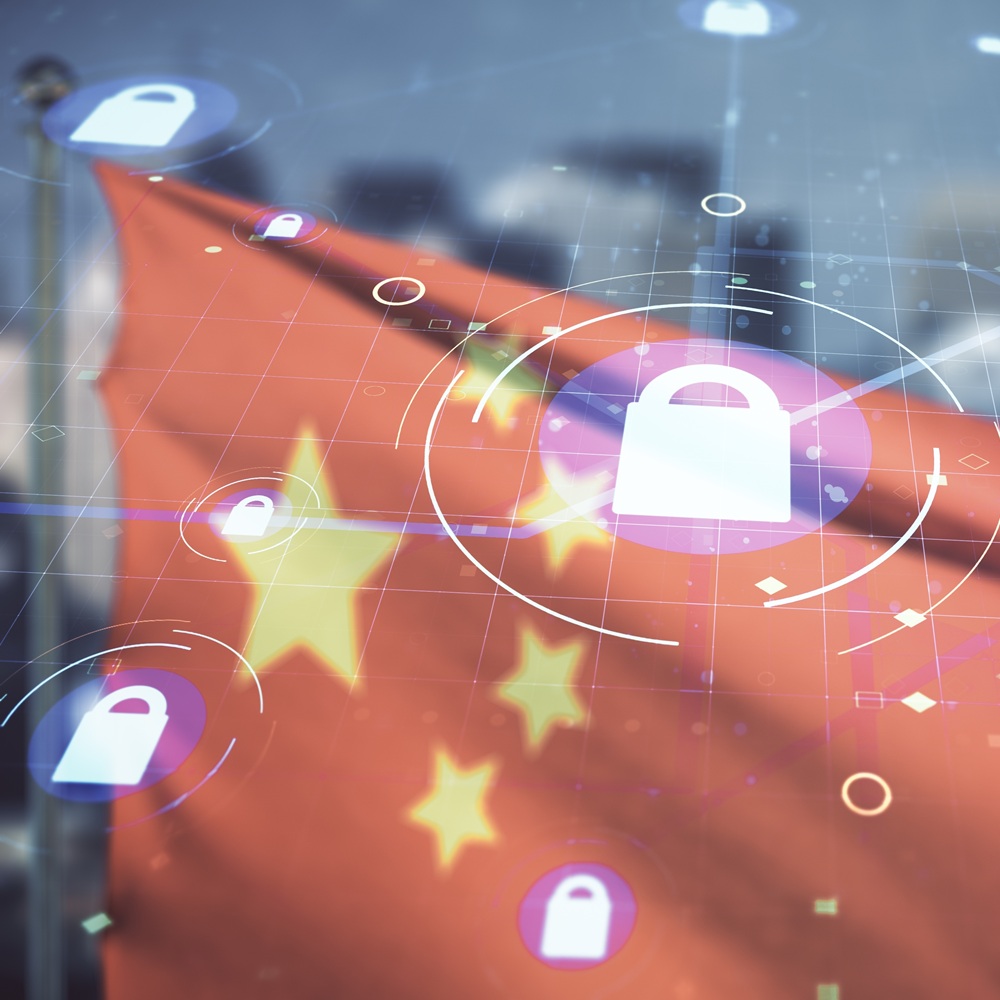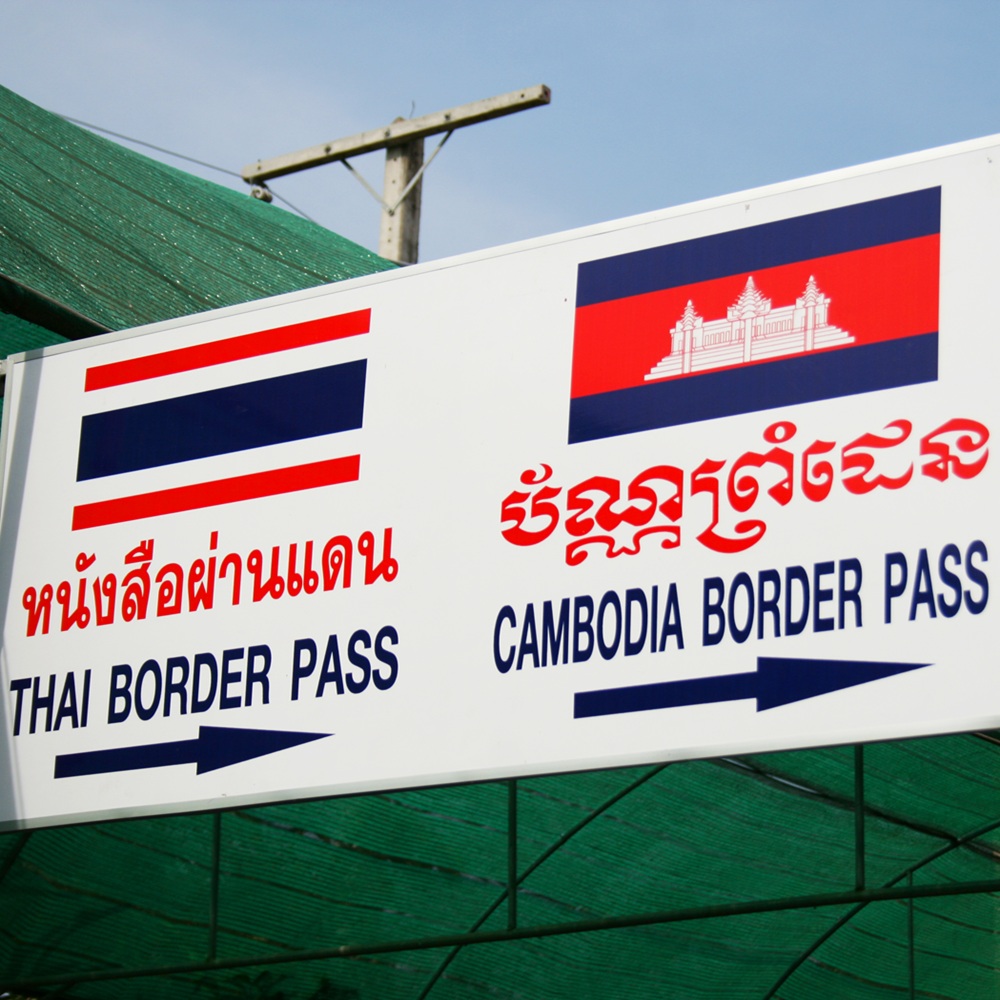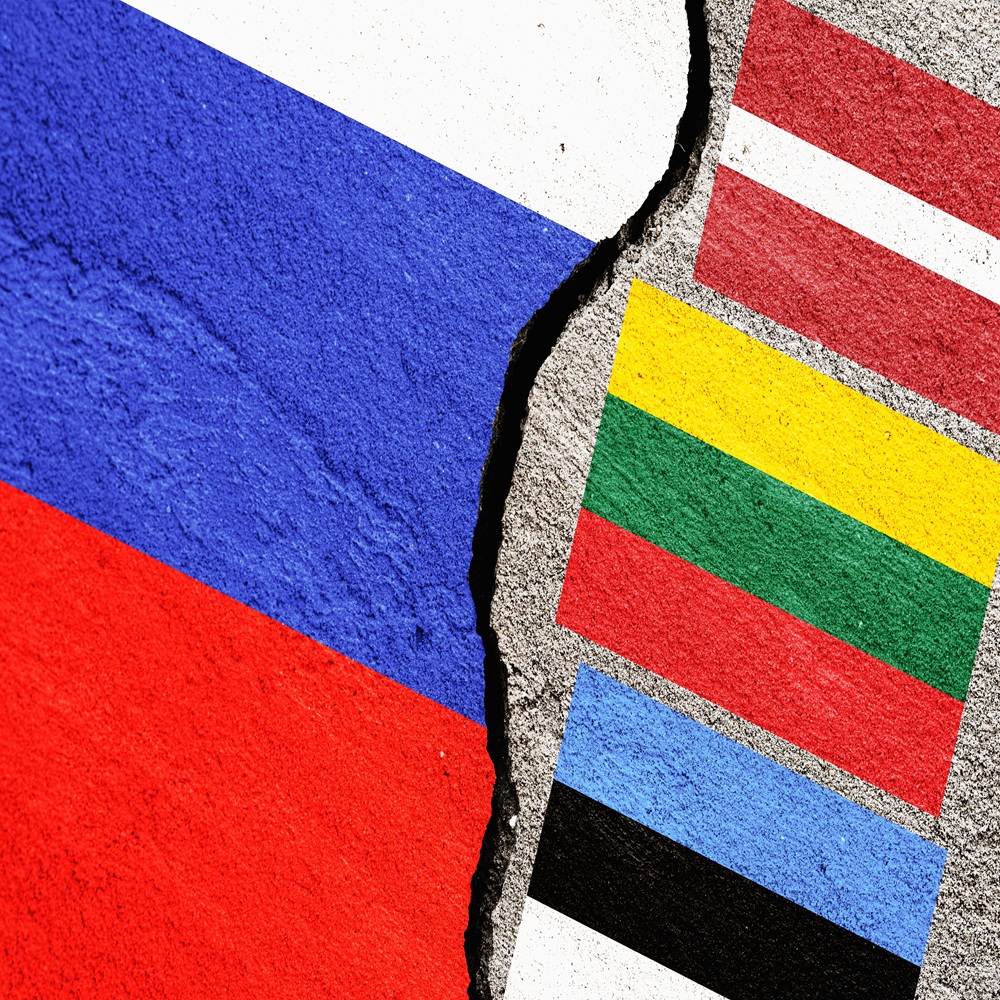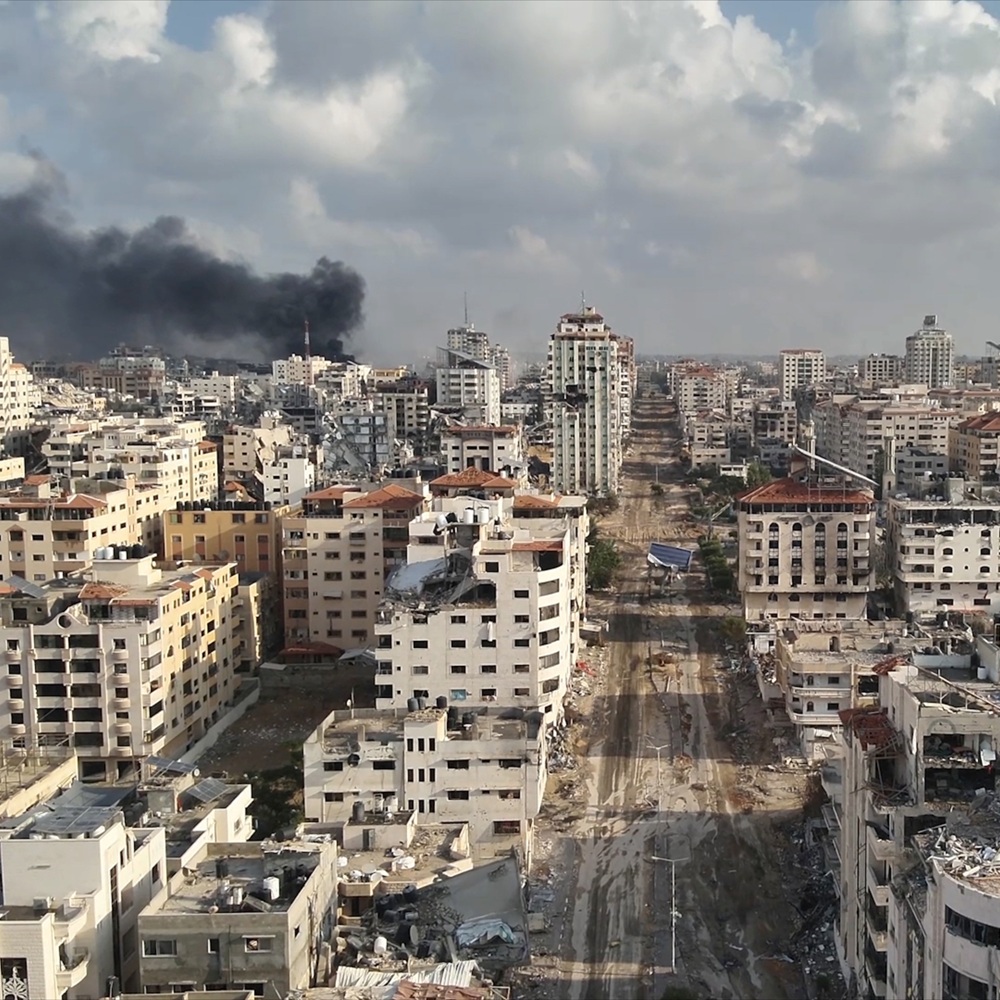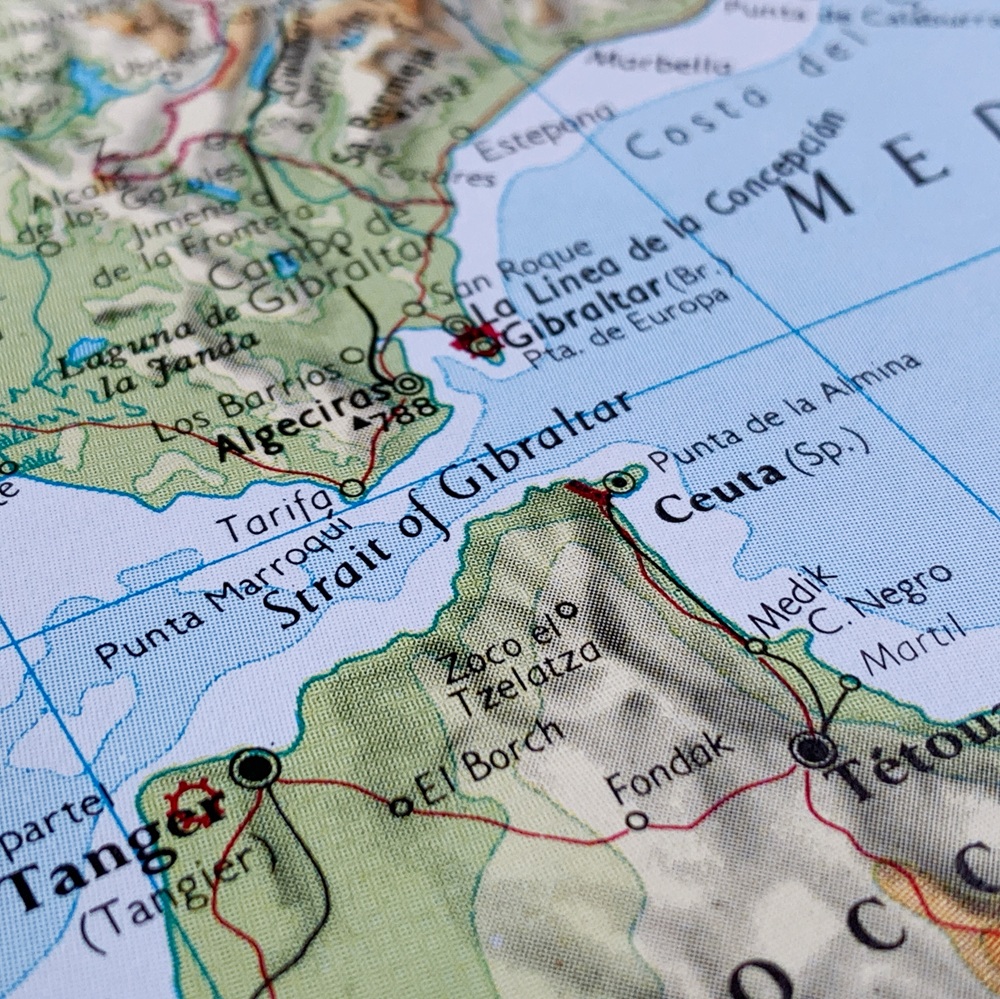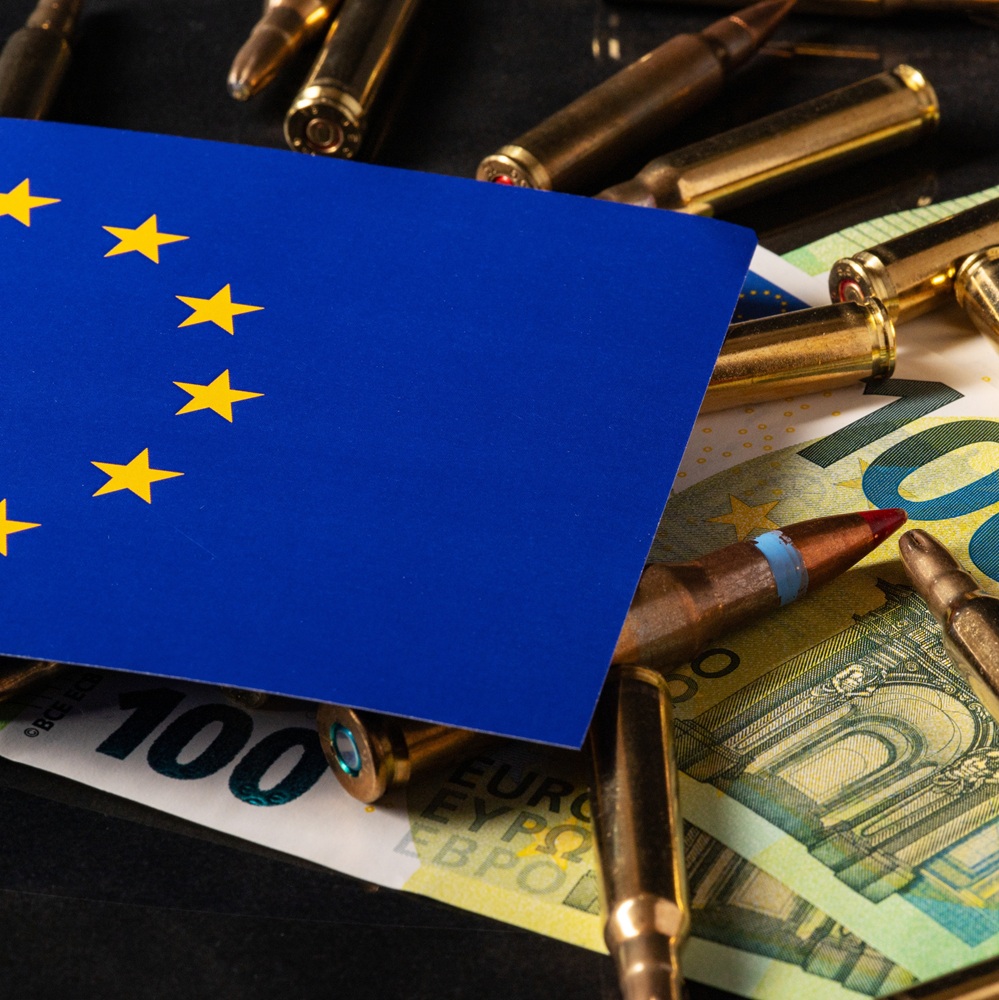
Can SAFE make Europe safe? From Civilian to Military Power Europe
by Krzysztof Sliwinski
한국어로 읽기 Leer en español In Deutsch lesen Gap اقرأ بالعربية Lire en français Читать на русском Abstract This paper focuses on the European Union as a military power. It starts with an introduction to SAFE – Security Action for Europe as a financial instrument designed to make the EU a formidable military power.The second part of the paper provides an account of debates regarding the nature of the EU (civilian, normative through ethical to military). Next, a brief historical account of European defence cooperation is presented.The central part of the analysis examines the key characteristics of the EU as a military power, which is marked by a gap between its declared motivations and the actual application of military and political means.The paper ends with the expression of scepticism regarding the role of SAFE in the future of European Security. Key Words: SAFE, Geopolitics, Security, Europe, Ukraine. Introduction SAFE (Security Action for Europe) is a financial instrument introduced by the European Commission to bolster defence capabilities across EU member states. Proposed in March 2025 as part of the broader ReArm Europe Plan/Readiness 2030, SAFE aims to provide up to €150 billion in loans by the end of the decade to support joint defence procurement and strengthen the European Defence Technological and Industrial Base (EDTIB).1 This initiative is driven by concerns over a potential Russian attack and growing uncertainty about long-term U.S. security commitments to Europe. To qualify for SAFE funding, 65% of a project’s value must originate from companies within the EU, the European Economic Area, or Ukraine. Rationale behind SAFE The EU Council formally adopted SAFE on 27 May 2025. SAFE is part of the €800 billion ReArm Europe/Readiness 2030 plan, which also includes other pillars such as fiscal flexibility (national escape clauses), cohesion funds, and private capital mobilisation. It appears that several geopolitical and strategic factors drive the establishment of SAFE. Firstly, there is the case of ongoing Russian aggression in Ukraine: The war, starting in February 2022, has exposed deficiencies in European defence capabilities and highlighted the need for rapid rearmament and increased self-reliance.2 The return of high-intensity warfare on European soil has prompted a reevaluation of defence priorities. Secondly, the shifting of the U.S. role. Concerns over reduced U.S. military support, particularly following political shifts in Washington.3 Thirdly, experts indicate the issue of capability gaps and industrial weaknesses. The EU has identified critical gaps in areas like air and missile defence, drones, and military mobility. The need to scale up production and reduce reliance on non-European suppliers has driven the creation of the SAFE initiative. Fourthly, support for Ukraine. SAFE includes provisions to integrate Ukraine’s defence industry, ensuring continued support for Kyiv amid uncertainties in global alliances.4 The evolving nature of EU power In recent history, it is Francois Duchene’s idea of “Civilian Power Europe” (CPE) that has dominated debates about the role of Europe and European institutions in the world. Duchêne's concept of (CPE) refers to a particular role for Europe in the world that emphasises non-military means of influence and the promotion of international values. Duchêne's original idea, articulated in the early 1970s, suggested that Europe could play a distinctive role based on low politics, non-state actors, ideational influences, and international interdependence rather than traditional military power. The CPE concept highlights Europe's potential to exercise considerable non-military power, combining the power dimension akin to a "European Trading State" with a normative foreign policy perspective aimed at promoting values such as equality, justice, and concern for people with low incomes abroad.5 Fast forward to the 21st century, and Ian Manners proposes another equally influential concept – “normative power”. Ian Manners' main argument is that the European Union (EU) should be understood not only in terms of traditional conceptions of "civilian power" or "military power" but rather as a "normative power" in international relations. He contends that the EU's international role is fundamentally based on its ability to shape norms and define what is considered "normal" in world politics. This normative power stems from the EU's unique historical context, hybrid political structure, and constitutional basis, which predispose it to act normatively by promoting principles such as peace, liberty, democracy, rule of law, and human rights. Manners argues that this normative dimension is crucial for understanding the EU's identity and influence internationally, as exemplified by the EU's active pursuit of the international abolition of the death penalty. He emphasises that the EU's power lies less in its military or economic capabilities and more in its capacity to diffuse norms and reshape international standards, making the concept of "normative power Europe" not a contradiction but a significant form of power in world politics.6 Shortly afterwards, Lisbeth Aggestam proposes yet another concept regarding the nature and role of the European Union in the world – “ethical power.” The concept of 'ethical power Europe' (EPE) in EU foreign policy represents a shift from focusing on what the EU 'is' to what it 'does. It articulates the EU's ambition to be a proactive global actor that not only serves as a positive role model but actively works to change the world in the direction of a "global common good." This involves the EU taking on new tasks in crisis management, peacekeeping, state-building, and reconstruction of failing states, complementing its existing roles in development aid and humanitarian assistance. The EU positions itself as a "force for good" and a peacebuilder in the world, justifying its acquisition of both civilian and military power capabilities in these terms.7 EPE encompasses both civilian and military power, as well as social and material power, thereby broadening the scope beyond earlier concepts, such as civilian power in Europe, as proposed by Duchene, and normative power, as emphasised by Manners, which primarily focused on civilian and normative influence. The EPE concept also reintroduces the international and national dimensions into the analysis of the EU's role, recognising the importance of member states' interests and acknowledging that material interests and ethical considerations often overlap. Importantly, EPE is not presented as an empirical reality but rather as a concept that opens new lines of critical reflection on the EU's role, motivations, and ethical dilemmas in foreign policy. It recognises the complexity of ethical foreign policy, given competing visions of order and justice in the world and the challenges of translating ethical ambitions into practice. The concept invites analysis of the ethical values the EU promotes, the relationship between ethics and interests, the just use of power (including military force), and the problems inherent in pursuing a consistent ethical foreign policy. Conversely, Karen Smith asserts that CPE is definitively dead, and the EU now finds itself somewhere along a spectrum between civilian and military power like most other international actors. Rather than debating whether the EU is a civilian power, the focus should be on critically analysing what the EU does and what it should do in international relations.8 According to Smith, the implications of the EU employing military means are significant and multifaceted. Firstly, the EU's acquisition and use of military instruments challenge the notion that the EU remains a purely "civilian power." Clinging to the civilian power label stretches the term beyond its breaking point, as military means are fundamentally non-civilian in nature. Peacekeeping and humanitarian missions, often considered civilian activities, frequently involve military personnel and can evolve into military operations, thereby further blurring the distinction between civilian and military roles. Secondly, by using military instruments—even as a "residual" tool to safeguard other means—the EU complicates the clear-cut distinction between civilian and military power. This leads to fuzzy interpretations about when the EU ceases to be a civilian power, making it difficult to establish a clear cut-off point or assess changes along the civilian-military spectrum. Thirdly, employing military means signals a shift from a post-modern, law-based international identity toward a more traditional power politics approach. This militarization risks discrediting the EU's earlier vision of transforming international relations through law and civilian influence alone. The EU moves closer to a "Hobbesian" model where military force backs diplomacy, which may undermine its unique post-modern identity and soft power. Fourthly, the use of military force raises complex questions about the EU’s ends and means, including the justifications for intervention, the legitimacy of coercion, and democratic control over foreign policy decisions. Finally, the continued use of military means necessitates moving beyond simplistic categorisations of civilian power to a more nuanced analysis of what the EU does in international relations. The EU, like most actors, falls somewhere along a spectrum between civilian and military power, and its military capabilities must be critically assessed rather than dismissed or downplayed. With this in mind, let us look at the EU as a military actor. A brief history of European defence cooperation Signed on March 4, 1947, the Treaty of Dunkirk was a bilateral alliance between France and the United Kingdom, primarily aimed at preventing renewed German aggression following World War II. Effective from September 8, 1947, and set to expire in 1997, it was also seen as a pretext for defence against the USSR. It laid the foundation for formal European defence collaboration, emphasising mutual assistance and alliance.9 In 1948, the Treaty of Brussels expanded this framework, encompassing Belgium, Luxembourg, and the Netherlands, and established the Western Union. This alliance focused on defence, economic, cultural, and social collaboration. By 1955, following the signing of the Modified Brussels Treaty, it evolved into the Western European Union (WEU), with Italy and West Germany joining, marking the establishment of a broader European defence structure. Parallel to these developments, the North Atlantic Treaty Organisation (NATO) was established on April 4, 1949, by 12 countries, including the United States, Canada, and several Western European nations, to counter Soviet expansion. NATO's Article 5, which states that an attack on one member is considered an attack on all, has become a cornerstone of transatlantic security. During the Cold War, NATO served as a bulwark against Soviet influence, with significant military and political cooperation among members. The WEU, while secondary to NATO, played a complementary role. In 1950, its defence structures were transferred to NATO, reducing its authority, but it remained active in fostering European defence collaboration. The WEU's social and cultural roles were transferred to the Council of Europe in 1960, with its focus shifting to security and defence. The end of the Cold War in the 1990s prompted a shift towards greater European autonomy in defence. The Maastricht Treaty of 1993 established the EU's Common Foreign and Security Policy (CFSP), aiming to coordinate foreign policy and security. This was followed by the Amsterdam Treaty in 1999, which introduced the Common Security and Defence Policy (CSDP), enabling the EU to conduct military and civilian missions independently. The 1998 Saint-Malo Declaration, prompted by the Kosovo War, endorsed a European security and defence policy, including the development of autonomous military forces. The 2002 Berlin Plus agreement allowed the EU access to NATO assets for peacekeeping, reflecting the close cooperation between the two organisations. The Petersberg Declaration of 1992, initially under the WEU, defined tasks such as humanitarian and rescue operations, which were later integrated into the Common Security and Defence Policy (CSDP). The Lisbon Treaty of 2009 further strengthened EU defence capabilities, incorporating the WEU's mutual defence clause. This rendered the WEU superfluous, leading to its dissolution on 30 June 2011, with its functions being transferred to the EU. The European Union Institute for Security Studies and Satellite Centre, previously WEU entities, were integrated into the EU framework in 2002, marking a consolidation of defence. *Generated with Grok and gamma.app (9 June, 2025). EU as a military actor As of mid-2025, the EU has approximately 3,500 military personnel and 1,300 civilian personnel deployed worldwide. Since the first CSDP missions and operations were launched in 2003, the EU has undertaken over 40 overseas operations, utilising both civilian and military missions in several countries across Europe, Africa, and Asia. As of today, there are 21 ongoing EU CSDP missions and operations, comprising 12 civilian, eight military, and one combined civilian and military initiative.10 According to the EU itself, “Their (Security and Defence Policy ((CSDP)) Missions) aim is to help prevent or resolve conflicts and crises, enhance the capacities of partner countries and, ultimately, protect the European Union and its citizens. EU decisions to deploy a mission or operation are typically made at the request of the partner country receiving assistance and/or based on a United Nations Security Council Resolution, always in full respect of international law. These decisions take into account the EU’s security interests, EU strategic efforts and regional engagement strategies. They are tailored to the local circumstances and to the tasks that need to be implemented”.11 Scholars researching the topic conclude that the political motivations behind EU military operations are complex, driven by a combination of national interests, strategic considerations, and internal EU dynamics. While the EU often justifies its operations with humanitarian rhetoric, the sustained deployment of military forces is often driven by broader strategic and political considerations. The influence of key member states, such as France and Germany, plays a significant role in shaping the EU's military agenda. However, the EU's ability to project influence is constrained by internal divisions and resource limitations. National Interests One of the most significant political motivations behind EU military operations is the pursuit of national interests by its member states. While the EU often presents a unified front, the decision to deploy military operations is heavily influenced by the interests of its most powerful members, particularly France and Germany. These states often use EU military operations as a means to advance their own strategic and economic interests while framing them as collective EU actions. For instance, France has been a key driver of several European Union (EU) military operations in Africa, such as the EUFOR mission in Chad and the Central African Republic (CAR). Critics argue that these operations were motivated by French geo-strategic and economic interests in the region rather than purely humanitarian concerns.12 Similarly, the EU's naval operation, Atalanta, off the coast of Somalia, was influenced by the interests of member states with significant maritime trade routes in the region.13 The dominance of national interests is further evident in the EU's decision-making process. Member states often prioritise their security and economic concerns over broader EU objectives, leading to inconsistencies in the deployment of military operations. For example, the EU's reluctance to intervene in the 2006 Lebanon war, despite initial plans for a military operation, was primarily due to divergent national interests among member states.14 Power Politics and Strategic Culture The EU's military operations are also shaped by power politics within the organisation. The distribution of power among member states plays a crucial role in determining the scope and nature of these operations. France, in particular, has historically played a key The EU often justifies its military operations with humanitarian rhetoric, emphasising the need to protect civilians, prevent human rights abuses, and promote stability in conflict zones. However, this rhetoric often masks more pragmatic strategic considerations. For instance, the EU's intervention in the Democratic Republic of Congo (DRC) in 2006 was officially framed as a humanitarian operation. However, it was also driven by the strategic interests of EU member states in the region's natural resources and political stability.15 Likewise, the EU's naval operation Sophia in the Mediterranean was initially justified as a humanitarian response to the migrant crisis. However, the operation also served strategic purposes, such as enhancing the EU's maritime security capabilities and addressing the political priorities of member states like Italy and France.16 The gap between humanitarian rhetoric and strategic reality is a recurring theme in European Union (EU) military operations. While humanitarian concerns may play a role in the initial justification for intervention, the sustained deployment of military forces is often driven by broader strategic and political considerations.17 Ukraine and EU’s Involvement Against Russia The EU has consistently condemned Russia's actions, viewing them as a violation of international law, and supports Ukraine's right to self-defence. This includes diplomatic efforts to isolate Russia and coordinate with partners like the US and NATO. Ukraine's EU candidacy, granted in June 2022, reflects long-term integration goals, though the process is expected to take years.18 So far, the EU has imposed 17 sanction packages by May 2025, targeting Russia's economy, military, and individuals, including measures against Belarus, Iran, and North Korea for supporting Russia. These aim to weaken Russia's war capabilities, with recent packages focusing on export bans and measures to prevent circumvention.19 The EU has committed €147.9 billion in aid, with €50.3 billion allocated for military support, €77 billion for financial and humanitarian assistance, and €17 billion for refugee support. This includes weapons, training, and emergency relief, as well as support for Ukrainian refugees under the Temporary Protection Mechanism. To counter the impacts of war, the EU reduced its Russian gas imports from 40% in 2021 to 15% in 2023, thereby diversifying its energy sources. It also facilitates Ukrainian grain exports through solidarity lanes, addressing global food security.20 Now, as noble as it sounds and as much as it fits into the self-perception of Brussels’s elites (the EU being a force for good), the critics of the West's support of Ukraine make a couple of formidable points. Firstly, the longer the war continues, the more destroyed Ukraine becomes and the greater the number of Ukrainians killed. Secondly, the longer the war continues, the greater the likelihood of escalation, which poses a threat to the entire European continent. Thirdly, despite mainstream media reports, the Russian Federation appears to have adapted to operating effectively despite the sanctions, which may strengthen its economy in the short to medium term and, more importantly, bring it closer to cooperating with China and North Korea. Finally, since every war serves as a testing ground for new technologies, the Russians, especially the North Koreans and the Chinese, are gaining invaluable insight into the nature of modern warfare, which is often referred to as the next Revolution in Military Affairs (RMA). Conclusion To answer the question introduced at the beginning of this analysis, “Can SAFE make Europe safe?” the author of this piece remains sceptical, to say the least. It appears that despite some initial intentions to end the Ukrainian war as early as April 2022, it is the European elites, especially French, German and Polish, who stand for the prolongation, if not escalation, of the Ukrainian war, potentially at the expense of the security of the whole European continent and definitely at the expense of Ukrainians and their country. References: 1. La Rocca, M. (2025, May 27). Defence, final go-ahead for the SAFE fund. Von der Leyen: “Exceptional measures for exceptional times.” Eunews. https://www.eunews.it/en/2025/05/27/defence-final-go-ahead-for-the-safe-fund-von-der-leyen-exceptional-measures-for-exceptional-times/ 2. COUNCIL REGULATION establishing the Security Action for Europe (SAFE) through the reinforcement of European defence industry Instrument. (2025, March 19). https://eur-lex.europa.eu/legal-content/EN/TXT/?uri=CELEX%3A52025PC0122&qid=1749479407767 3. Tidey, A. (2025, May 21). Everything you need to know about SAFE, the EU’s €150bn defence instrument. Euronews. https://www.euronews.com/my-europe/2025/05/21/everything-you-need-to-know-about-safe-the-eus-150bn-defence-instrument/4. Scazzieri, L. (2025, March 26). One step forward for Europe’s defence. Centre for European Reform. https://www.cer.eu/insights/one-step-forward-europes-defence 5. Orbie, J. (2006). Civilian Power Europe: Review of the Original and Current Debates. Cooperation and Conflict, 41(1), 123-128. Sage Publications, Ltd. https://www.jstor.org/stable/450844256. Manners, I. (2002). Normative power Europe: A contradiction in terms? Journal of Common Market Studies, 40(2), 235–258.7. Aggestam, L. (2008). Introduction: Ethical power Europe? International Affairs, 84(1), 1-11. https://www.jstor.org/stable/251447118. Smith, K. E. (2005). Beyond the civilian power EU debate. Politique européenne, (17), 63-82. L'Harmattan. https://www.jstor.org/stable/450177509. The road to European defence cooperation. (1947). European Defence Agency. https://eda.europa.eu/our-history/our-history.html10. European Union External Action, (2025, January 30). Missions and Operations. https://www.eeas.europa.eu/eeas/missions-and-operations_en#87694E11. EU COMMON SECURITY AND DEFENCE POLICY (CSDP) MISSIONS AND OPERATIONS. (2025, April). https://www.eeas.europa.eu/sites/default/files/documents/2025/EU-mission-and-operation_2025.pdf 12. See more at: Bono, G. (2011). The EU’s Military Operation in Chad and the Central African Republic: An Operation to Save Lives? Journal of Intervention and Statebuilding, 5(1), 23–42. https://doi.org/10.1080/17502977.2011.541781 and Olsen, G. R. (2009). The EU and Military Conflict Management in Africa: For the Good of Africa or Europe? International Peacekeeping, 16(2), 245–260. https://doi.org/10.1080/13533310802685828 13. See more at: Dombrowski, P., & Reich, S. (2019). The EU’s maritime operations and the future of European Security: learning from operations Atalanta and Sophia. Comparative European Politics, 17(6), 860–884. https://doi.org/10.1057/S41295-018-0131-4 and Riddervold, M. (2018). Why Not Fight Piracy Through NATO? Explaining the EU’s First Naval Mission: EU NAVFOR Atalanta (pp. 195–217). Palgrave Macmillan, Cham. https://doi.org/10.1007/978-3-319-66598-6_10 14. Engberg, K. (2013). The EU and Military Operations: A comparative analysis. https://www.taylorfrancis.com/books/mono/10.4324/9780203381663/eu-military-operations-katarina-engberg15. Engberg, K. (2013). The EU and Military Operations: A comparative analysis. https://www.taylorfrancis.com/books/mono/10.4324/9780203381663/eu-military-operations-katarina-engberg 16. Dombrowski, P., & Reich, S. (2019). The EU’s maritime operations and the future of European Security: learning from operations Atalanta and Sophia. Comparative European Politics, 17(6), 860–884. https://doi.org/10.1057/S41295-018-0131-4 17. Bono, G. (2011). The EU’s Military Operation in Chad and the Central African Republic: An Operation to Save Lives? Journal of Intervention and Statebuilding, 5(1), 23–42. https://doi.org/10.1080/17502977.2011.541781 18. EU response to Russia’s war of aggression against Ukraine. https://www.consilium.europa.eu/en/policies/eu-response-russia-military-aggression-against-ukraine-archive/19. Russia’s war against Ukraine. (n.d.). https://www.consilium.europa.eu/en/topics/russia-s-war-against-ukraine/ 20. See more at: https://www.consilium.europa.eu/en/infographics/where-does-the-eu-s-gas-come-from/









